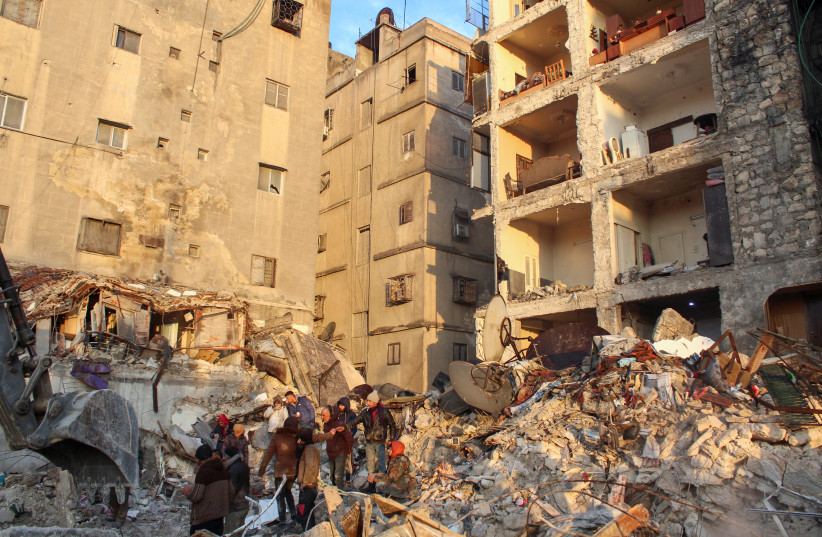An earthquake shook southeast Turkey on Monday, killing one person, injuring 69 and causing 29 buildings to collapse, Turkish authorities said, triggering frantic work to rescue several people believed trapped in rubble.
The latest aftershock, with a magnitude of 5.6 and depth of 6.15 km, hit three weeks after a massive quake that killed more than 50,000 people in Turkey and Syria.
A rescue team carried out one man alive, strapped to a stretcher, from the rubble of a building in the province of Malatya, live footage on broadcaster CNN Turk showed.
A while later, it showed a woman, said to be the man's daughter, rescued from the same building.
Yunus Sezer, head of Turkey's Disaster and Emergency Management Authority (AFAD) told a news conference that search and rescue teams had been deployed to five buildings.

There have been four fresh earthquakes in the region in the past three weeks, as well as 45 aftershocks with magnitudes between five and six, said AFAD's general director of earthquake and risk reduction Orhan Tatar.
"This is very extraordinary activity," Tatar said.
ELECTIONS DUE
The earthquakes have struck months ahead of presidential and parliamentary elections, scheduled to be held by June, which present the biggest political challenge to President Tayyip Erdogan in his two-decade rule.
A delegation from Turkey's High Election Board was scheduled to visit the quake zone on Monday to start gathering material for a report on the feasibility of holding elections in the region.
Turkey has arrested 184 people suspected of complicity in the collapse of buildings in this month's earthquakes and investigations are widening, a minister said on Saturday.
On Sunday, AFAD announced that the death toll in the devastating quake three weeks ago had risen to 44,374.
The overall number of deaths in Turkey and neighboring Syria exceeds 50,000.
More than 160,000 buildings containing 520,000 apartments collapsed or were severely damaged in Turkey by the disaster, the worst in the country's modern history.
The quakes are expected to have a deep psychological impact, with children particularly vulnerable.
After the latest tremor, AFAD issued a fresh warning on Twitter telling people not to enter or even stand near damaged buildings in the earthquake zone.
